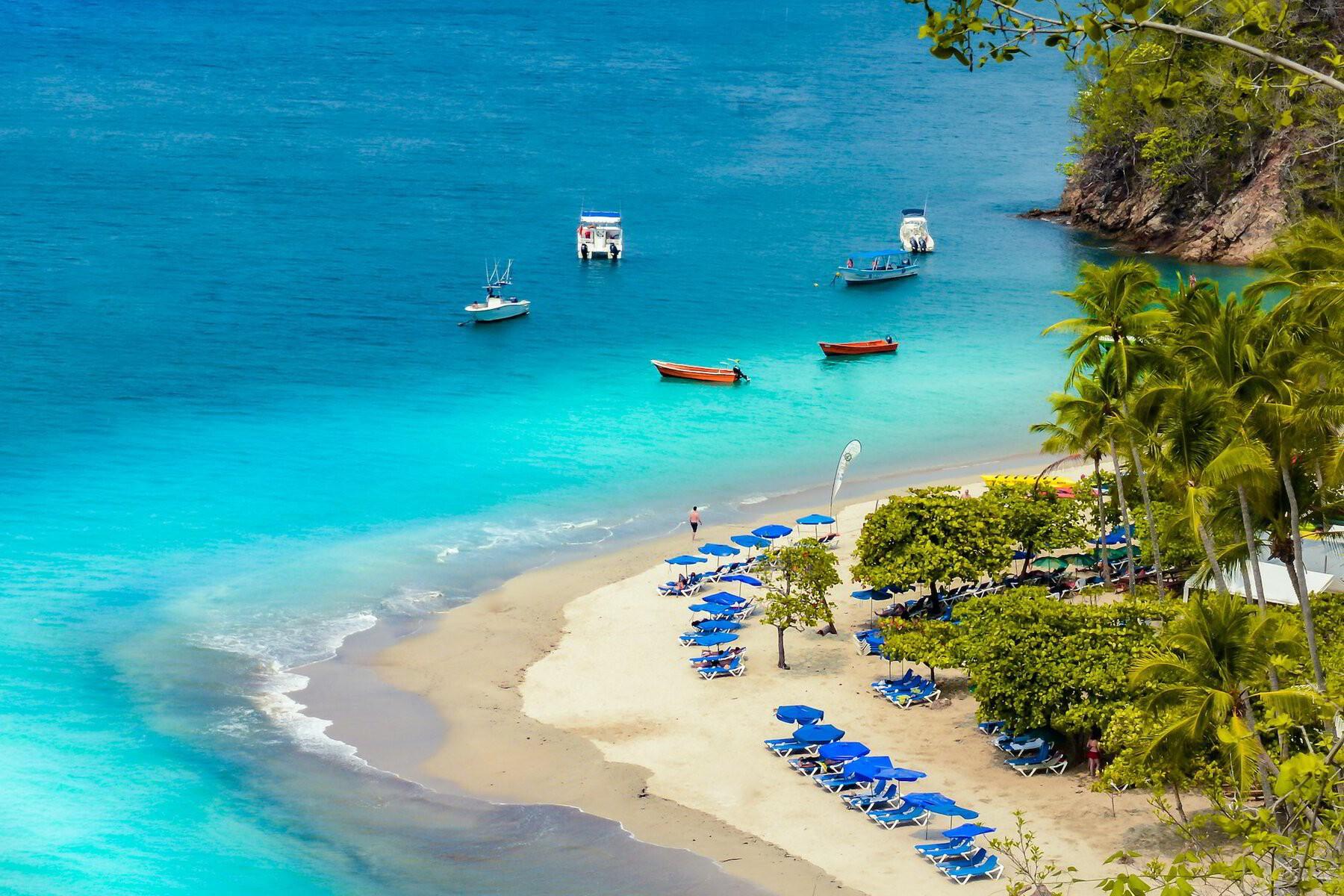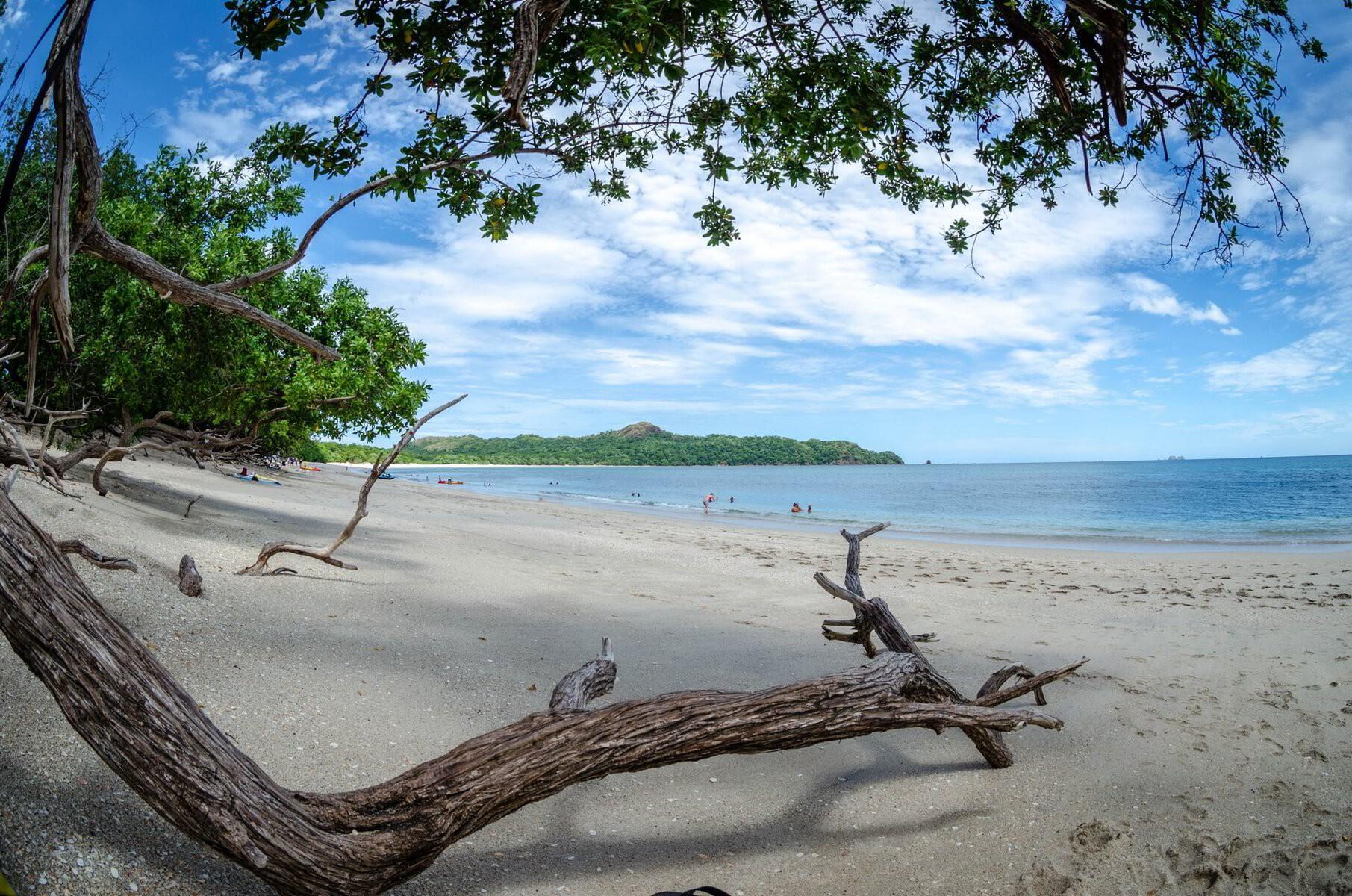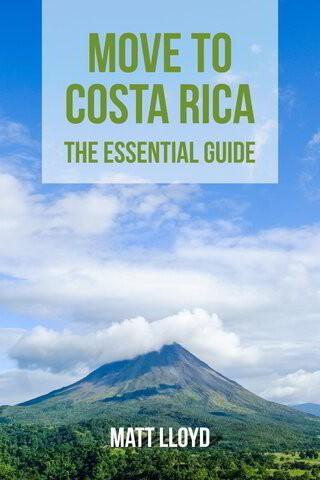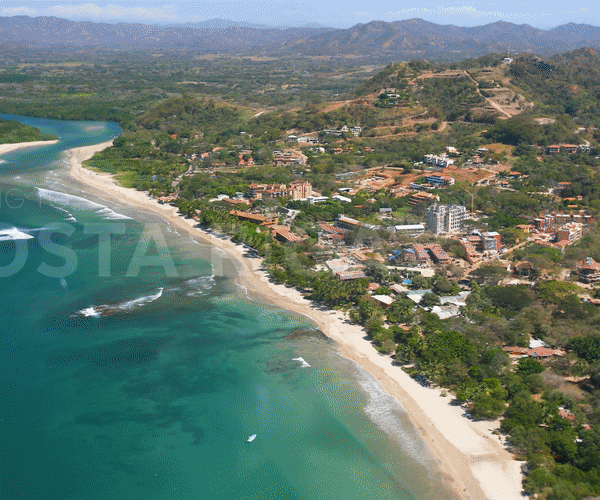COSTA RICA
LATEST ARTICLES

by Miranda Abbott Wittman in Costa Rica
Becoming a digital nomad or working remotely are growing trends in business. These areas of employment are on the rise and certainly, the pandemic has sped up that process. This has created an influx of people interested in living abroad, especially when the costs of living can be greatly reduced with a move. Individuals on a pension or those working remotely are eligible for residency in Costa Rica.
In fact, many individuals have their eyes focused on this small Central American country. The lure of its beautiful beaches, lush nature reserves, the well-known Pura Vida lifestyle, and its stable political environment has made Costa Rica an ideal location for both singles and families.
But what about the professionals who can’t work remotely and want to explore the idea of living in Costa Rica? There is job availability and you may qualify for a working visa in areas the government has deemed a necessity for skilled labor from abroad. It is common to have teachers and people working in technology on work visas. However, the pay in these sectors could be much lower than what most North Americans and Europeans are used to. Notably, an average teaching salary is between $1000 and $2000 per month in Costa Rica. If the cost of living was significantly lower this might not be a problem. Although the cost of living here is lower it certainly isn’t cheap. Most ex-pats living in tourist areas and beach communities find the cost of living quite high. Whereby, the central valley has proven to be a more stable long-term and affordable option.
This leaves another option open and that is, starting a business. The allure is certainly there and who doesn’t dreams about a quaint beach restaurant and adorable bed and breakfast? But, the stark reality is that although starting a business is an option for foreigners, it is not always easy.

If you are considering opening a business, as I did over ten years ago, there are a few things you should plan for and consider.
1. Location
First, you must consider where you will start your business. If you have never visited or lived in Costa Rica this can be a difficult decision. Most ex-pats think only of the beach, figuring that this is where the market will have the most success. However, you must consider that the high season in beach towns is very short. In my experience operating my shop and yoga studio in Playas del Coco, I had only four solid months of business, two months with moderate sales and attendance, and six months of budgeting and waiting for the high season to begin again.
You’ll also want to consider where you’ll be comfortable. Costa Rica has 12 climate zones that range from hot and dry, humid, and even freezing. By widening your scope you can locate a region perfectly tailored to your preferences. Is 40 degrees celsius really your comfort zone 365 days per year? The majority of ex-pats leave Costa Rica one to two years after they initially decided to move here. It’s important to investigate why and plan accordingly in order to not make the same mistakes.
The central valley, for example, is a cooler climate with a stable long-term community that is not solely based on tourism. Culturally it feels more like home and I found was a much easier transition. My suggestion is for people to be more open. Costa Rica is a thin country, the coast is never really far. We love to treat ourselves to a beach weekend at a resort and enjoy the best attractions different beaches have to offer. A mountain community may be more stable and offer a wider range of clientele. Your fees to operate your business tend to be significantly lower as well, so do your homework and keep an open mind.
2. Saturation
Costa Rica is of course attractive to professionals in the yoga and wellness industry. You may travel here with the dream of starting a yoga studio and discover that the market is totally saturated. My main clientele for yoga in Coco was primarily ex-pats and Costa Ricans from the Central Valley. Meaning, that classes were normally full during the high season and holidays in which Costa Ricans from more urban areas traveled to the coast for vacation. Yoga is popular in the city all year round, as are gyms, massage clinics, and other wellness centers. The price per class was also significantly lower in Coco. In the city, I am able to charge closer to $10 and $12 per class while most people in Coco paid around $5 to $6 per class. This drastically changed my income.
The same can be found for other businesses like restaurants. We often joked whether Coco needed another pizza spot. For a small town, the number of Italian restaurants was quite impressive. Therefore, if you plan on opening any business in a new country, be sure to do some investigating. What are people in the area interested in? What is missing? What type of business could be supported all year?
I would also suggest before you pour your savings into a new business to look and see who may be looking for a partnership. A hotel would probably welcome a service that would serve both of your business needs. In addition, could cut startup fees and have you earning sooner.
3. Language
This is probably one of the most important things to consider, speaking the language. I started my business before being fluent in Spanish. This created a significant divide between me, my local customers, and the authorities I would have to answer to. I found I could easily work with locals artisans because they were always eager to sell goods and patient with my inability. Even working with government organizations, I found them extremely patient and helpful. Nevertheless, being able to navigate the system with more comprehension would have made the business a lot easier and I could have avoided some novice mistakes.
4. Experience
From the outside, a restaurant, club, hotel, shop, or even a yoga studio have romantic appeal. But it goes without question, that each business has its own challenges. They can be strenuous in a country to which you are familiar, with a language you speak and a culture you can relate to. Starting a new business without these securities adds a whole new level of difficulty.
5. Growth and Longevity
It will be important to be able to sustain your business and living through the lulls of the tourist seasons. Each area will be a little different. In Coco, for example, my busiest months were December, January, February, and March. I experienced a moderate increase in sales during what we called “little summer” in July and August when the rains let up a little, the ocean was clear again and the tourism had a slight increase due to summer holidays in the North. In addition, I would benefit from slight increases during Costa Rican holidays such as Semana Santa in April. Discover the ebb and flow of the region in order to create proper estimates and projections. My business fluctuated in sales, the low seasons were typically only 10% to 20% of what I pulled in during the four busiest months. To maintain your business you will need to make accurate projects and prepare for the worst. Survival in tourist areas requires capital and planning.
6. Return on your Investment
Hopefully, if you’ve made it to number six, you will agree that accurate planning makes all the difference. You want to protect your return on your investment. Maybe you’re traveling here with savings, maybe you sold your home, either way, I suggest speaking with a good lawyer and reputable real estate agent who work with recognized international companies. They know the market and can help you protect your investments. In addition, they may already have clients looking for investors with a guaranteed return on your money. Make sure that there aren’t other options in Costa Rica that will award you with an investor’s residency and a more solid return on your savings.
7. Necessary Requirements
Foreigners can open a business here. It is an option to work and make money without residency and you may be eligible for residency depending on how much you invest in Costa Rica. In order to start your business, you will need a corporation. Legal fees aren’t terribly high here, a typical fee for starting a corporation is between $400 and $1,000. Make sure you are given the corporate books or keep them with a reputable lawyer who will remind you of any changes in the legal system, new taxes, and other government expenses. There will be taxes you will need to pay depending on the type of corporation and services. There is a 13% IVA tax and any write-off for your business needs the specific “factura electronica” invoice. You will need to be registered to both give and receive this type of statement.
If renting a location, rental contracts begin at three years. Renters have strong legal rights in Costa Rica. I’d still advise you to hire a lawyer to confirm that your contract is legally sound. Most likely you will be asked to pay rent in dollars. This means that if the colon losses value you will end up paying a higher rent. If your business fluctuates with the high and low seasons, I’d advise you to ask for a varying high season/low season rate. It’s not common, but worth the ask if your landlord is willing and understanding.
Once you have your location, you will require a “patente” and potentially other documentation from the “Ministerio de Salud”. Patente applications can take up to six months. Be patient, don’t expect to open as soon as your start paying rent. Budgeting accordingly will be necessary, once again, a good lawyer should help you. Make sure you hire a lawyer known for being prompt. I had experience with a legal company that billed me for the patente and other services but never fulfilled my requests. It put me back months in my project and cost me a couple of thousand dollars. Interview as many lawyers as you can and GET EVERYTHING IN WRITING, especially the projected costs and deadlines.

Photo www.inspiringvacations.com
As a foreigner, you are permitted to work in your business. However, you must employ Costa Ricans. The minimum wage is around $4/hour but I don’t suggest paying lower than $6 per hour if you want dedicated employees. Keep in mind that you are required to pay CAJA, medical insurance, for your employees. Employers are required to pay 26.33 percent of the employee's salary to CAJA and employees must pay 9.34 percent. In addition to CAJA, there is worker's insurance to pay with INS. It’s a relatively low expense but should have a place in your budget. INS will assess your business and deliver a quote.
In Costa Rica, all workers receive a 13-month bonus called 'Aguinaldo'. Each of your employees must be paid an additional month’s salary in December. You may also be required to pay a severance package should you need to cut staff without just cause. Article 81 of the Labor Code defines 12 reasons why dismissal may be just, additional regulations are outlined in the Labor Code article 29. During national holidays you will require you to pay your employees a double wage.
If you are eligible to hire staff as contract employees, you will not have to pay CAJA or other insurance. Contract employees will charge you the 13% IVA tax to which you will receive the “factura Electronica” and will be able to submit those fees along with your business expenses. With recent changes in tax law, the fiscal period will match the calendar year, but there will be special cases in which the taxpayers may request the approval of a fiscal period different than the calendar year. The general rule is that all companies must file the tax return two and a half months after its fiscal closing.
Moving Forward
Hopefully, I’ve shed some light on business practices and expectations in Costa Rica. I learned a lot while doing and even though it had its challenges, it had just as many rewards. I thoroughly enjoyed owning my shop and yoga studio in Coco. I was able to find balance in my life there. I lived simply, I didn’t have a lot of money for extras but sustain my life without stress through the low seasons. I do live a lot more comfortably in the Central Valley. Still, Coco provided a needed “detox” from my previous life.
I learned a lot about Costa Rican culture and enjoyed the adventure that Coco provided. Had I started my business with more information, I might have exceeded my goals. Overall, I see my ventures there as a success and carry the valuable lessons into my current real estate business, helping both newcomers and locals to create a fulfilling lifestyle.

About The Author
Miranda Abbott Wittman is a creator of Dance Equations - a company that develops math dance programs with cross-curricular linkages for educators based in Costa Rica.
https://www.danceequations.com/
https://www.makecostaricahome.com




